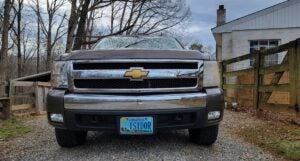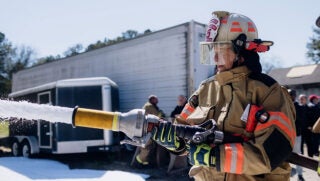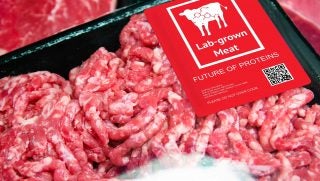It’s no secret that the latest Census of Agriculture showed a decline in American farmland, so it’s with a lot of enthusiasm that high-development states such as Virginia have long put the revenue earned through specialty-plate sales toward farmland preservation.
Virginia has had an agricultural specialty plate for two decades, and it costs $25 on top of normal registration. After the sale of the first 1,000 qualifying plates, $15 from each $25 fee begins benefitting programs of the Virginia Office of Farmland Preservation, which is run through the Virginia Department of Agriculture and Consumer Services.
The design — which features iconic agricultural imagery such as silos and a large red barn — has remained the same since the plate was launched in 2004.
“The Virginia agriculture license plate is a great way to show your pride and promote agriculture in the state,” Andrew Smith, former senior assistant director of governmental relations for the Virginia Farm Bureau Federation, said in an article in 2016. “It bears a farm scene taken directly from a farm in Orange County. Part of the proceeds from each plate go to the work of preserving Virginia farms. The Office of Farmland Preservation uses the funds to host workshops to teach farmers how to plan farm transition and how to keep their land in production.”

The specialty plates also feature the phrase “Farming Since 1614,” which is a reference to explorer and farmer John Rolfe’s first shipment of Virginia tobacco to England. And while tobacco isn’t the crop it once was, the cultivation of tobacco as a cash crop was a major contributing factor to the success of early Virginia settlements such as Jamestown, the first permanent English settlement in the new world. (In fact, back in the 1990s, Virginia had a “Tobacco Heritage” design that also celebrated this piece of history.)
Today, Virginia has roughly 44,000 farms across 8.1 million acres of land, making it by far the largest industry in the commonwealth. Virginia ag has an economic impact of over $70 billion annually and provides nearly 334,000 jobs. The top commodities include broilers, cattle, dairy, soybeans, and turkeys. Plus, record-setting corn-yield farmer David Hula is a Virginian, hailing from Charles City in the central part of the state.
Virginia Farm Bureau led the movement behind the development of the plate — it was responsible for the design and promotion of the plate and worked to get the legislation passed to authorize it. The organization also helped to secure the minimum number of applications to move the plate forward.
“Our membership wanted to promote agriculture and support keeping farmland in production in Virginia,” Smith told The Franklin News Post in 2008.
There were a couple of hurdles in the early 2000s to get the specialty plates up and rolling. Funding was originally to be directed into the Virginia Agricultural Vitality Program, which was established in 2000 through a budgetary bill. However, the funding for this program was later returned as part of budget reduction exercises. A year later, efforts for the Virginia Agricultural Vitality Program were renewed and ultimately renamed the Office of Farmland Preservation.
The 2004 General Assembly is where the bill titled Special license plates; supporters of Virginia agriculture; fees got the full green light and the Department of Motor Vehicles was able to begin issuing the plate.
“This idea came from the Eastern Shore Farm Bureau members and was approved by the voting delegate body at last year’s annual meeting. This effort will help keep agriculture on the general public’s mind,” Smith told the Rappahannock Record in 2004.
And we’d be neglectful not to note that there is another farm-centric specialty plate in Virginia: the FFA plate. After all, Virginia is where FFA got its start, so it’s natural that there is a specialty plate there to highlight that amazing organization.


